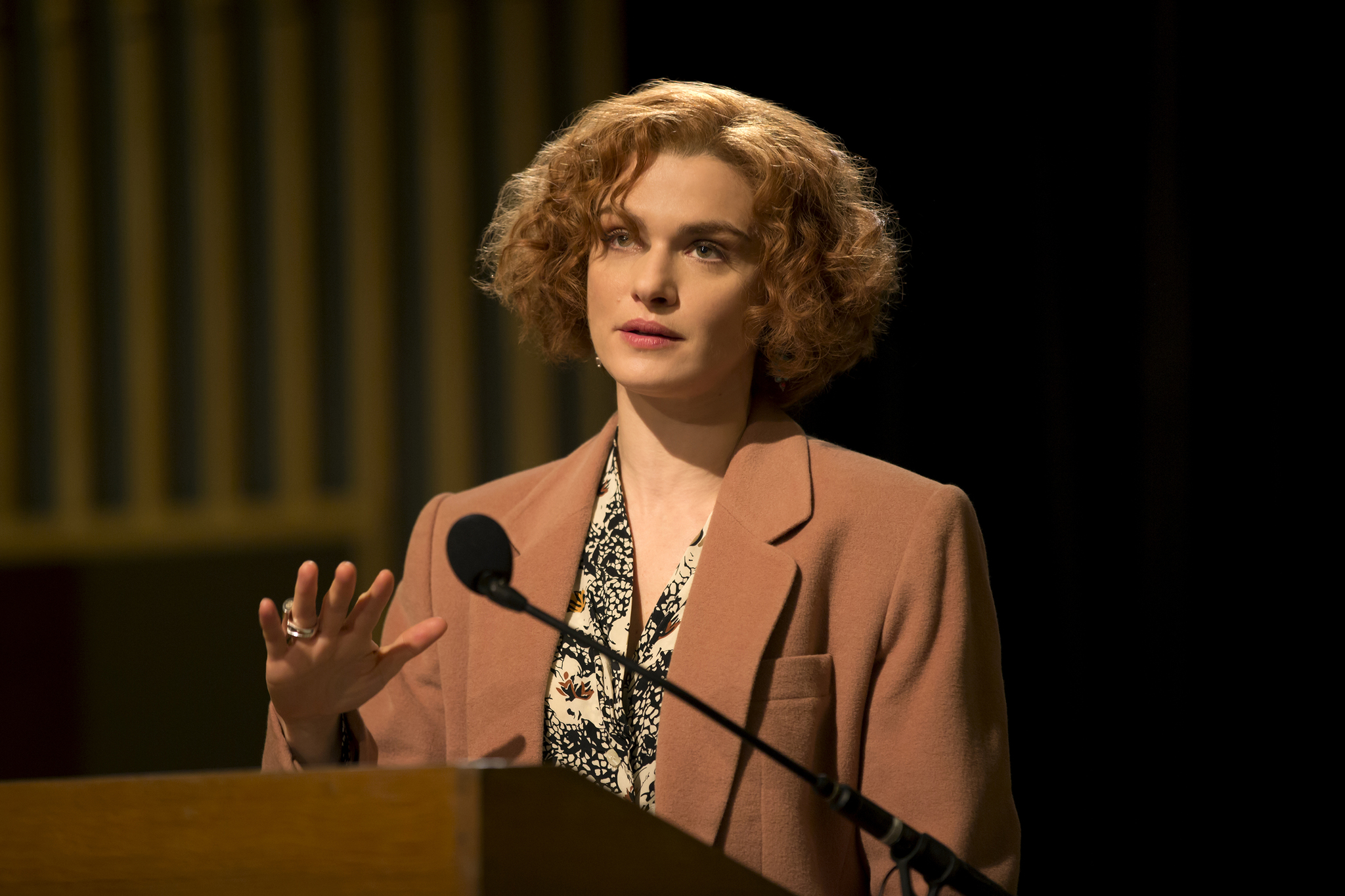“Not all opinions are equal.” How good it is, in this our time of cultural lunacy, to have these words definitively spoken. The fact that the phrase is uttered in a not-especially-great film is perhaps disappointing, but you gotta start somewhere, and movies have been known to lead the cultural conversation. Even when they’re not great.
Denial is written by the esteemed David Hare and directed by the journeyman Mick Jackson, so you might be able to guess where it soars and where it staggers. Hare, the unsparing author of Plenty and Skylight, based the script on Deborah Lipstadt’s experience in the world of Holocaust deniers. Lipstadt is a New York-raised academic (she once taught at the University of Washington) who was sued for libel in British court in 1996 over her book Denying the Holocaust, which named English author David Irving as an anti-Semite and Holocaust denier. The UK legal system mandated that Lipstadt had to establish that what she said was true—a situation that essentially put her legal team in the strange position of proving the Holocaust happened.
Lipstadt is played by Rachel Weisz, whose Queens accent is accurate, although there sure is a lot of it. Her showy performance is justifiable because one of the issues the movie wants to highlight is the difference between the way Americans do things—emotionally, impetuously, loudly—with the way the English (or Hare’s ideal of the English) do them, which is not emotional or impetuous or loud. Hare uses the Irving case to build an argument about why a factual approach, even with someone as infuriating as a Holocaust denier, might be superior to a more blatantly heart-tugging strategy. Hare does this against audience expectations: When Lipstadt demands to speak on her own behalf in court, our training is to back her—You go, girl, and stick it to all these Oxford-accented, powdered-wigged mansplainers. And when she is approached by Auschwitz survivors who also want to speak at the trial, surely our sympathies must be with them. Both notions are scotched by Lipstadt’s legal team, who prefer a lucid marshaling of the evidence; they are driven not by outrage but by a kind of cold revulsion.
Timothy Spall, a master, plays Irving, and he contributes a fine example of what actors mean when they say you can’t play characters as monsters. His Irving is devilishly clever, conceited, resentful of the upper-class experts who surround him—but pathetically human, for all that. As Lipstadt’s chief attorneys, the reliable Tom Wilkinson and Andrew Scott (Moriarty in the BBC Sherlock Holmes) do smooth work, especially in the courtroom scenes. Apparently the trial dialogue was taken verbatim from transcripts, which could explain why these scenes sound better than the sometimes gauche attempts at setting up story and building characters. An exception to the latter weakness is the legal team’s eerie visit to Auschwitz, an ambiguous sequence played against milky fog and frozen ground. The scene hints at the idea that while walking across the roof of a gas chamber might be a way of documenting atrocity, it also might be an act of desecration.
Denial is too clumsy to really take off, but its central topic is so interesting it might not matter. And by central topic, I don’t mean the Holocaust; the film provides some basic repudiations of denier-think, but it won’t convince conspiracy theorists who swarm through online comments sections. No, Hare’s real subject is corrupted public discourse. In our time, history has become a bunch of opinions—because we all have our interpretations, right?—and expertise is denigrated. So Irving gets to portray himself as a victim, because why shouldn’t his crackpot ideas be treated as equal to those of other historians? In the era of truthiness, this movie’s timing is ideal. Of course, I could be wrong about that. It’s just my opinion. Denial, Rated PG-13. Opens Fri., Oct. 14 at various theaters.
film@seattleweekly.com






